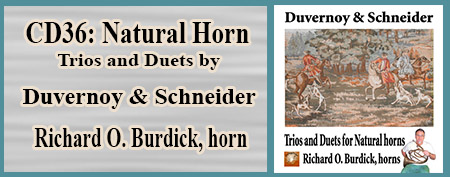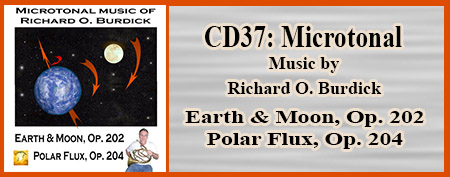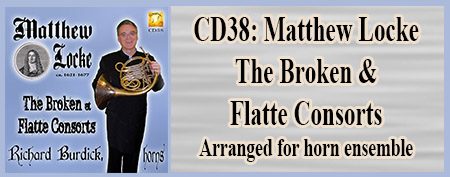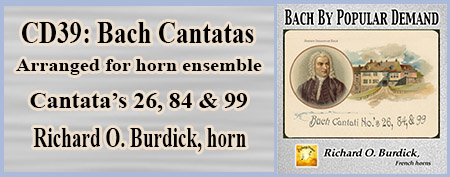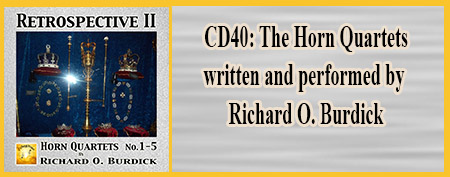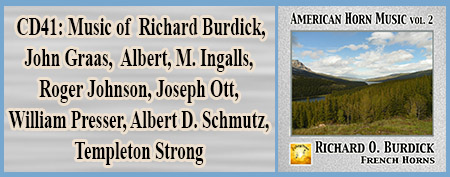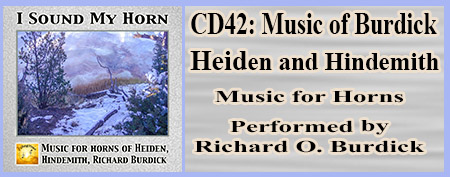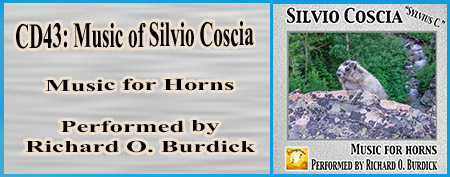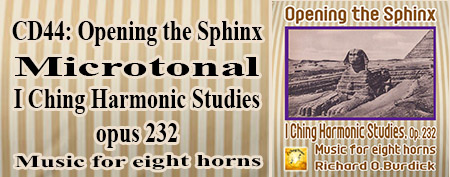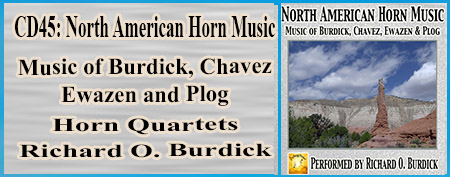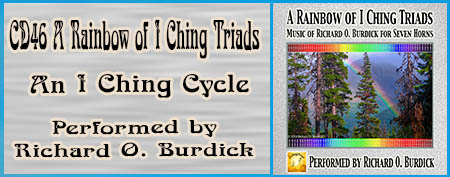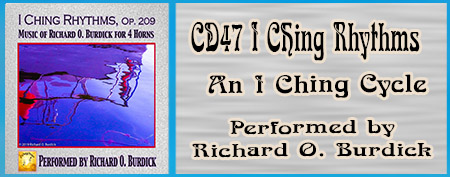The musical compositions of Richard Burdick
Follow on Twitter
Opus 118
Horn Concerto No. 3
horn with brass quintet (14:07)
Fall 1998
(See also version for horn with string orchestra, Opus 118a
and the version for trumpet with wind quintet, Opus 118b )
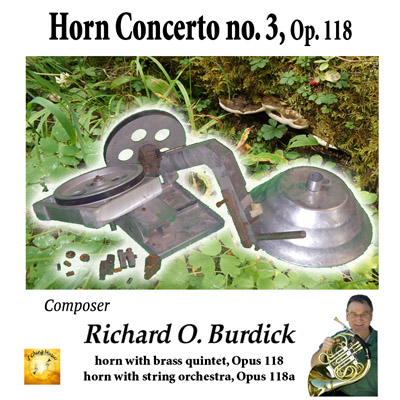
Horn Concerto No. 3, Op. 118 was written by Richard Burdick in the fall of 1998. This was written with the natural horn in mind as the soloist. The natural horn is quite a soft instrument the way it was played as a “hand horn” in the classical and romantic era. This quiet instrument made it very difficult for the accompanying brass instruments to play. So the final version is for modern valve horn with brass quintet. There is also a version for horn with string orchestra (Op. 118a), and a version for trumpet with wind quintet (Op. 118b). Rreally this work is best for the oringal brass ensemble. With the brass, it’s easier to hear the intertwine lines in the different parts.
The sheet music is available from MusicaNeo.com
String version Op. 118a Brass version, Op. 118
Trumpet with wind quintet version, Op. 118b to be released
Watch the demo on youtube & please share it with your friends.
version for horn & strings
version for horn & brass quintet
![]()
The solo horn part can be downloaded free from IMSLP.
This work is in four movemenrts:
1 - Allegro
2 - Adagio
3 - Scherzo
4 - Rondo; Allegretto
![]()
I Ching scale #49: C+D-Eb+F G+A+B (minor)
#31: C#-D-Eb+F Gb+Ab+Bb-B
Movement one is in two parts:
a choral like slow introduction
and an allegro.
The score is 15 pages long at it is estimated to be 5 minutes long.
![]()
Movement two is an Adagio five score pages long.
![]()
Movement three is sort of
a scherzo
starting in 3/4 time, but slowing down into 9/8
time as it develops.
![]()
Movement four starts like
a rondo, but develops into a section of repeated eighth
notes, then comes back to the rondo faster and finishes
loud with a faster repeated tones section.
This movement premiered June 2000 at the Music in The Mountains
festival in Grass Valley, California. With Richard Burdick
planing the solo Natural horn part. The other movements
still need a premiere.
Old text:
Movement four of my concerto for natural horn with brass
quintet based on the I Ching hexagrams 49 (changing) & 31
(attraction) in the keys of E and C is basically in an
ABAB form with the B section a variation of the happy
melody of the A section. Each new section is slightly
fast then the previous in the ratio of 3:4.
About the dynamics: In looking through the score as I prepare this page (July 2007), I see there may be room for more dynamics. This is partially because this piece was written for solo natural horn; a very hard piece. The dynamics of the brass quintet in the natural horn version need to be quite quiet. These are all dependent on the soloist. I have added Forte's and above at the end of the fourth movement.
| Opus 118 | Concerto for horn (#3) with brass quintet | Fall '98 | e 15 min | 49, 31 |
| Andante - Allegro | 9/1998 | e 5 min. | 49, 31 | |
| Adagio | 9/1998 | x 2 m | 49, 31 | |
| Scherzo | 10-11/'98 | x 2:50 m bs | 49, 31 | |
| Rondo - Allegretto | 10-11/'98 | x 4.31 m bt | 49, 31 |
Solo horn part PDF:
Share This on Twitter Share This Link on Facebook
Search I Ching Music:


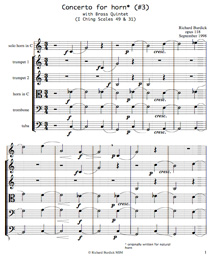
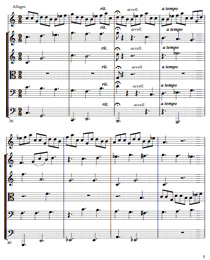
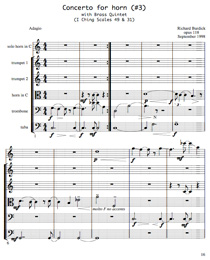
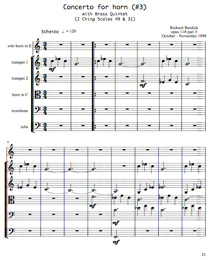
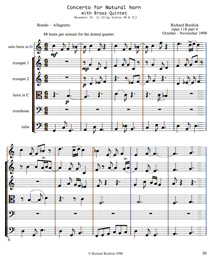
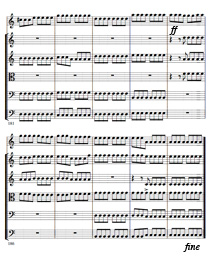
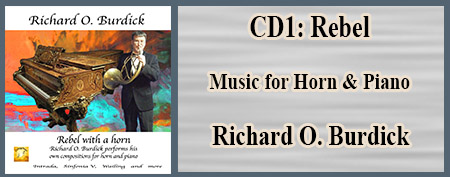
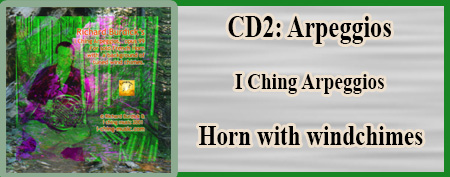
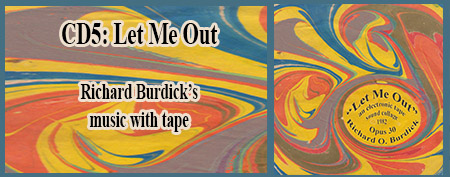
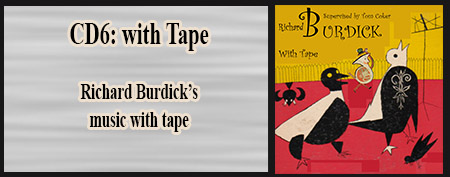
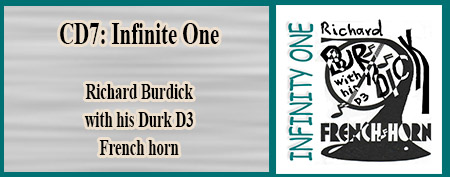
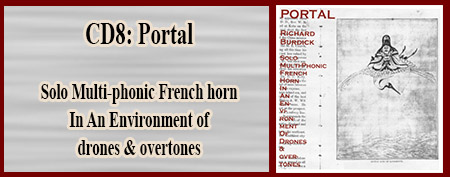
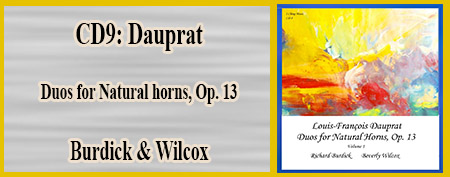
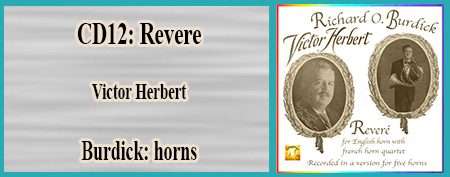
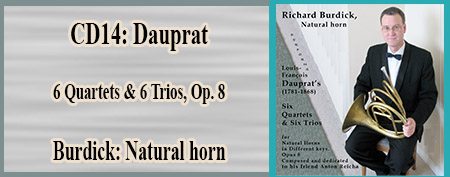
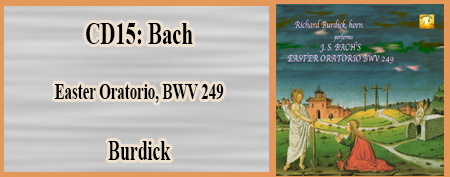
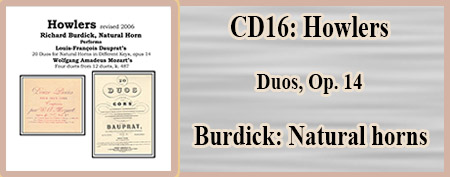
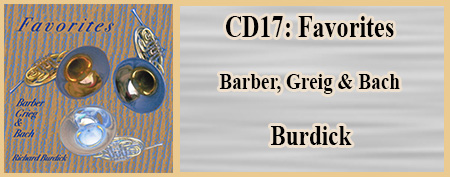
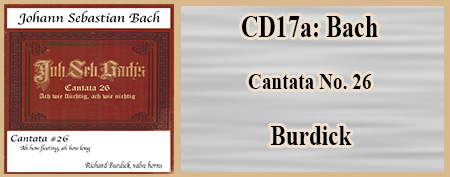
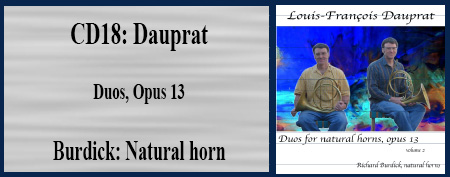
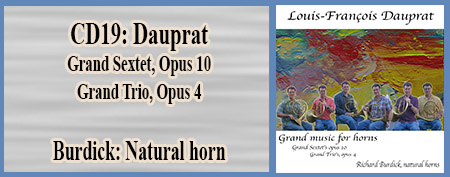
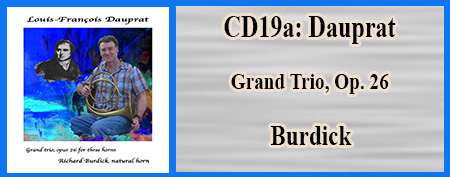
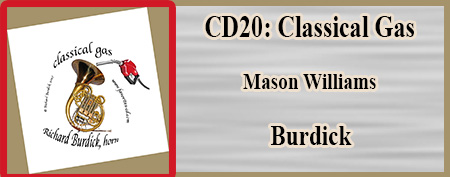
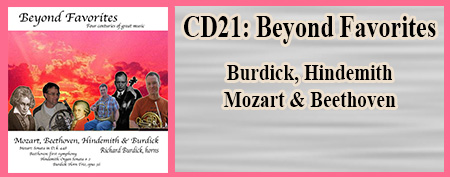
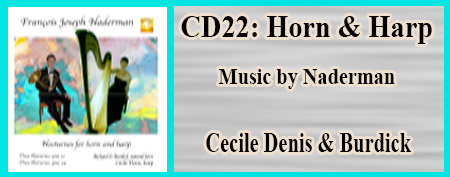
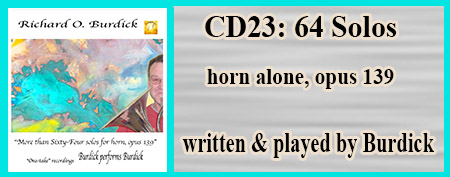
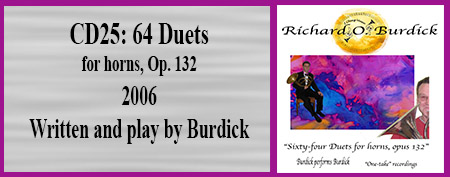
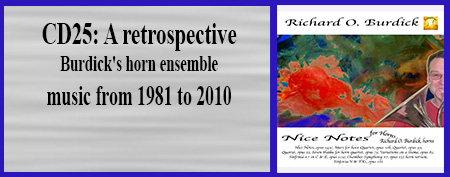
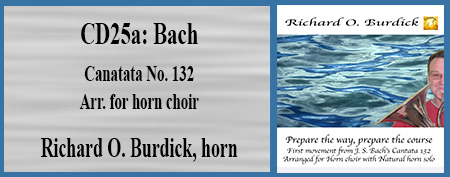
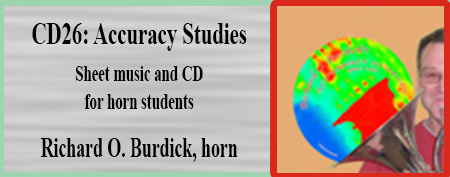
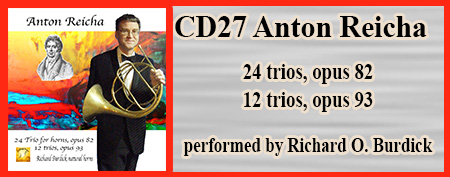
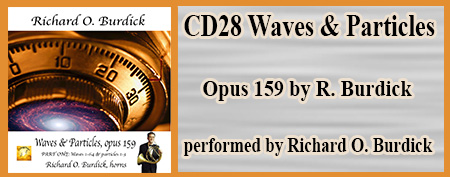
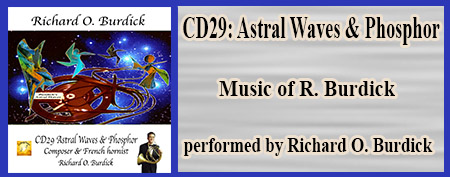
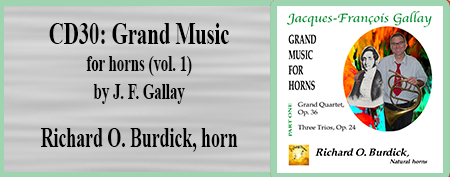
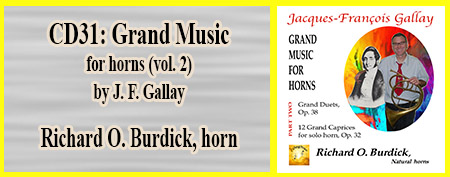
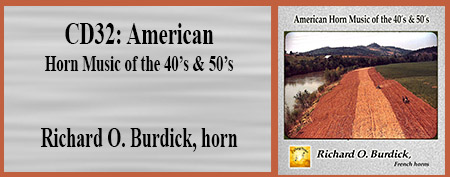
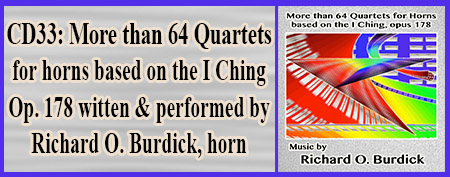
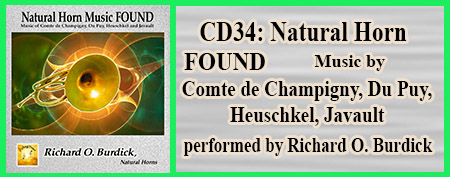
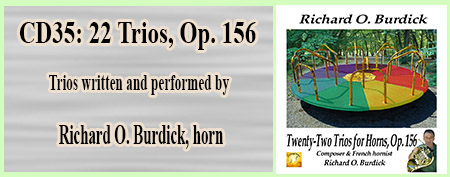 CD36
CD36